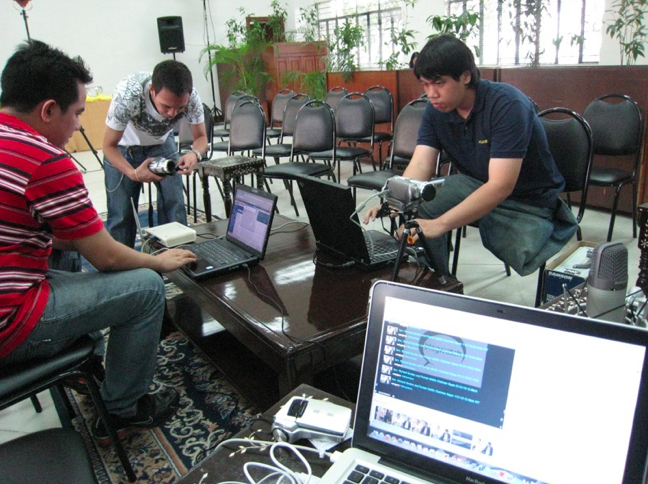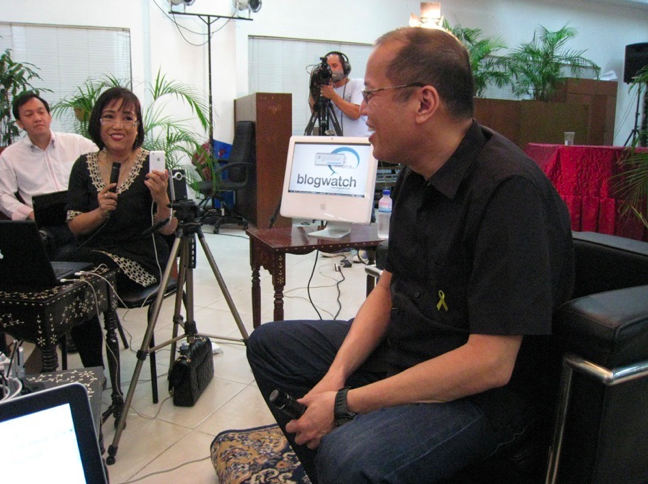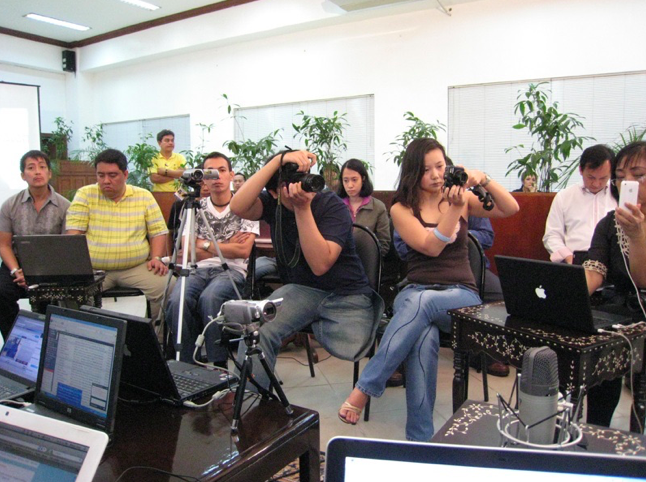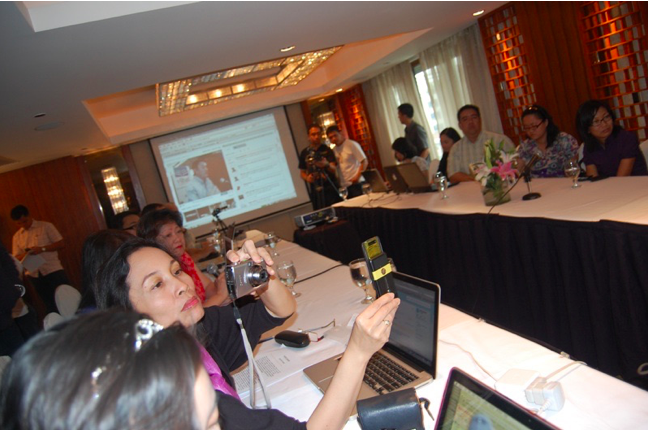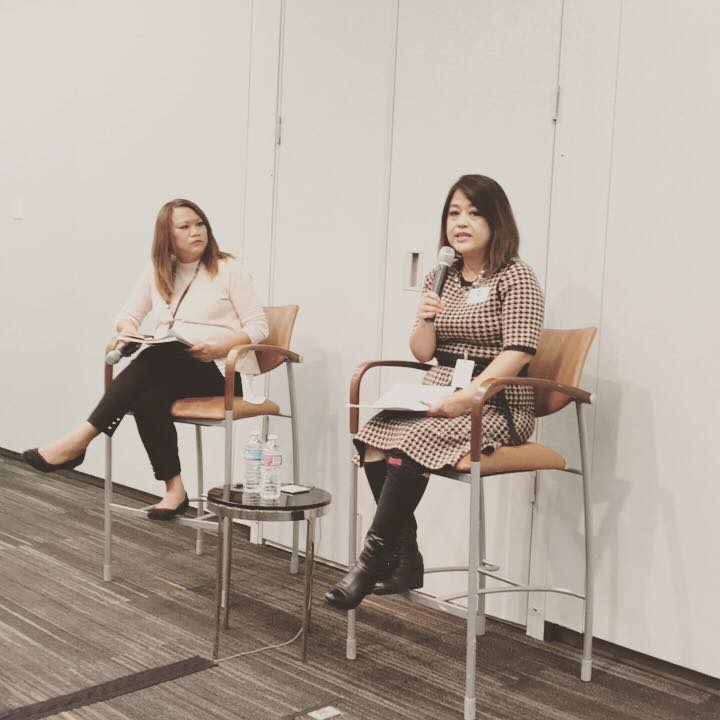Playing a role in the online coverage of 2010 elections
The past nine months seemed to pass by so quickly. It was the month of August 2009 when I first got introduced to the May 2010 elections, something that a mom blogger had no inkling about. Post-election analysis have started to come in and I am quite eager to read the evaluation of media in its election coverage. The Center for Media Freedom and Responsibility (CMFR) released a report on Online Coverage of 2010 Elections: Citizen journalists at work where “unprecedented in the country’s election history, bloggers and citizen journalists covering the 2010 elections were given media accreditation IDs by the Commission on Elections (Comelec)”. CMFR monitored the following online news websites:Inquirer.net, Philstar.com,GMANews.TV, abs-cbnNEWS.com, Philippine Center for Investigative Journalism, Manila Bulletin, VERA Files,Bulatlat,Pinoy Weekly, NBNi.TVNewsbreak Online, Philippine Online Chronicles (POC) and 100Araw.com. The ABScbnews.com online news article treated CMFR report with a sensational title, Election online news mostly mainstream, sensational and that “online news websites played an important role as source of information on the country’s first automated polls, but majority reported mainstream and sensational stories”. The title is quite misleading because the CMFR report says that it was “Inquirer.net, Philstar.com, GMANews.TV, abs-cbnNEWS.com, NBNi.TV,Mindanews and Manila Bulletin that mostly provided mainstream treatment on their coverage by focusing on personalities and sensational issues. Majority of the reports were in the he-said-she-said format although they also provided a few in-depth and investigative reports.”
I am quite disappointed with the CMFR report because it excluded Blog Watch even in the Philippine Online Chronicles (POC) where we are hosted. I thought at first that bloggers were not included but 100araw.com who are composed of bloggers made it to the report. Besides, citizen journalists were discussed so it puzzles me why we are not part of this report. I will not toot my horns here but rather reflect on the online coverage done in the past 9 months.
An empowered personal blog
Writing about political issues is a rarity in my personal blog. I always feel stumped whenever I get invited to meet the politicians especially when you are surrounded by political bloggers. It is a “nosebleed’ experience where I often get headaches after the interviews. The next question I ask myself is, why am I doing this anyway? My personal blog is mainly a parenting blog yet I care a lot about the future of the country because my children are part of the voting population. The least I can do is to share hope to my readers. As a blogger, my resources are limited to commentary, opinions and observations. I know I needed to go beyond than just being a mom blogger. Perhaps it was destiny that led me to the Philippine Center for Journalism (PCIJ) training seminar on “Covering Elections in the Era of Internet and Automation”. Eventually nine bloggers in Blog Watch got to be trained by PCIJ. Most of us are your ordinary bloggers who are not used to writing about politics so the training offered us the opportunity to widen our scope. You will find a travel blogger, mom bloggers, food bloggers,. Tech bloggers. Business bloggers. We are concerned citizens that happen to be tech-savvy and quite active in social media.
We learned that media coverage of past elections in the Philippines has often been criticized for its superficiality. Reporters often focus on personalities rather than issues and platforms. Mass media has the responsibility to accurately report the political and technical aspect of elections and plays a vital role in informing voters and holding candidates, political parties, and election authorities accountable. The better the caliber of media coverage, the more credible the election results will be. What an inspiring thought. It moved me to think bigger than just being a mom blogger.
Bloggers joined forces
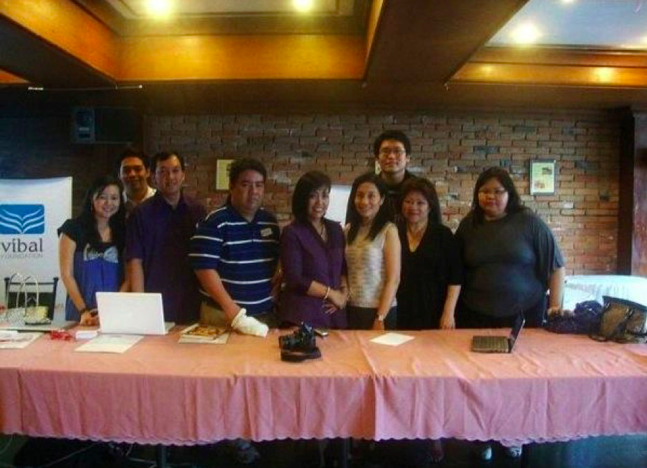
Photo courtesy of the Philippine Online Chronicles
At the PCIJ training, we were told that bloggers play an important role in the election coverage because we have an existing community that can virally disseminate information among our readers as well as to other social media users, especially on the social networks which comprise 51 percent of Internet users in the Philippines. I actually started a voters education page but I felt that it might not reach a wide audience. What if I invited bloggers to write for a portal? That’s how Blog Watch was conceived and the focus was inspired from the PCIJ training– underplayed stories, commentaries, platforms, issues, campaign finance, automated elections, and voters education.
For the first time bloggers would cover elections yet “bloggers in general are not constrained by the common conventions that govern the conduct of traditional journalists with their sources. Since bloggers are simply people interested in writing on the Net, there is no employer-employee relationship, and no journalistic code of conduct.” Credibility needed to be established. I felt that working with an existing organization can assist us with the credibility and logistics issues especially when it came to the best practices as established by the Philippine Press Council Code of Ethics on Covering Elections. “Pay our way. Do not accept cash or gifts in kind from politicians and political parties. Beware of surveys. Declare conflicts of interest. Draw the link between your journalism and your money making ventures.” The latter was never going to be a problem since all the bloggers had day time jobs or were entrepreneurs.
Building Credibility
Getting appointments with presidential candidates was a challenge at first. Using our own network of friends, we managed to invite seven out of the nine presidential candidates. That’s how I discovered that the candidates formed a new media team for online campaigns. A common question raised was “Can you explain your organization?” A campaign team scoffed at my gmail address saying that we should have a domain address to be credible and started to lecture me on credibility. Another presidentiable was pleasantly surprised to find out that bloggers were not “bitches” after all. Our redeeming factor is that a friend of a candidate often vouched for our credibility. It was important that we focused on in-depth discussion on platforms and issues that would normally not be discussed on television due to limited air time. Watching candidates grapple through our questions (which they never knew beforehand) often gave us a sneak preview of the candidate’s ability to handle pressure and whether one is cool, easily annoyed or evasive. Two hours never seemed enough to tackle all the issues yet it gave me an idea if the candidate actually knew how to implement their platforms from point A to B.
It was easy to interview senatoriables, and a few local candidates from thereon but it was just impossible to talk to all of them. Bloggers in Blog Watch needed to earn a living during the day and most often, our free time was at night.
The buzz created by our efforts did not go unnoticed by the Comelec because for the first time, bloggers were given media accreditation from the Comelec which in turn paved the way for other bloggers outside Blog Watch to get accredited on their own merits.
What dark side?
The PCIJ article on the “Dark side of elections stalk bloggers, techies” is another disappointment because the article chose to sensationalize the minority (if they even exist) on the dark side of blogging without recognizing the efforts of the civic-minded bloggers. The article says that “in the online world, they say, Death Stars and Sith Lords stand side-by-side with political candidates.” As far as I know , I don’t know of a single death star or an influential blogger pretending to be respectable and with good intentions. Suspicions are often raised whenever we talk positively of an unpopular candidate. Accusations of being a paid hack is common and quite laughable because we have our own sources of income. The great majority of bloggers are principled citizens who love their country and just want to do their share to make these elections credible.
The underplayed stories and features
Blog Watch was not conceived to replace traditional media, but rather complement the news or present the underplayed stories.
Voters education is not often written about in newspapers or even shown on prime time TV. Topics popular in Blog Watch are 2010 criteria: Coherent platform, clear vision, character, competency on What I look for in a president, Making a choice- Your presidential candidate, Guide to presidential candidates and the automated elections . Though we only interviewed 11 senatorial candidates, we managed to write feature articles on all senatorial candidates, party-lists and a few local candidates. Online campaign ads soon stalked us everywhere in social media networks and one of our bloggers provided original stories on Campaign ads and election spending , Politics in the Age of AdSense: A view of the political campaign landscape online and Electrons, Pixels, and Pesos: A look at online campaign finance
It is interesting to note that next to How to vote in an automated election, the platforms of Manny Villar ranked second in terms of search engine results traffic. Visitors were also interested in other candidates and the next source of traffic is Why Gibo Teodoro (ranked 6th) , and Why Noynoy Aquino (ranked 11th). It shows that the electorate are interested about their candidate’s platforms.
Readers found the the voting matrix and platform matrix useful tools to complement our articles, along with video interviews and podcasts. The facebook fan page offered breaking news from mainstream media that served as a forum for discussion. We utilized our gadgets and social media platforms in interviews providing live coverage and taped recordings through the assistance of Pocholo of Creativoices. You can take a peek at the behind the scenes of our interviews. The online viewers enjoyed these livestreaming events because it gave them the opportunity to get to know their candidates as TV debates can only offer limited time on issues. The highest page views registered in our livestreaming site reached 20,000 at its peak.
Writing articles for Blog Watch is a challenge to some of us because it takes us 4 to 6 hours. The slow turnover proved to be a disadvantage one time when a network used our story without attribution. POC resolved our predicament by utilizing their in-house writers to turn out breaking news stories or even write for the Politiko section while we worked on our drafts.
Significance of social media in the elections
As bloggers, we were also active social media users. Discussions in twitter , facebook or plurk became commonplace sometimes resulting in twitter or facebook fights. Pretty soon, I noticed media outfits or presidential candidates and supporters started to follow us in Twitter or facebook.
Things were attempted for the first time on an unprecedented scale. Social media has proven to be an incubator for influencing public opinion, to influence media perception and the quest to find political patient zero- who has the capacity to make something go viral. It is precisely the reason that “online media have also been the source of image spin and black propaganda against the candidates” that CMFR reported. Blog Watch never encouraged unverified news about candidates and instead chose to educate voters on the effects of negative campaigning.
Now that the Philippine election day has come and gone, what can we say about the impact that social media had on registering, informing, and mobilizing voters? The 2008 USA election has been called the YouTube election, the Facebook election, the new media election and so on. In the recent UK election, they call it the first social media election. Well, the 2010 Philippine election is a far cry from the social media election of the UK and the USA. We have have not attained that level yet.
Social media is still a relatively new political tool in the Philippines. Even the candidates did not maximize its potentials. We will never know how many voters got influenced with our stories, and interviews. It is a fact that it is TV, not broadsheet not even the internet that is the most influential source in choosing a president.
Our work has just started. Lessons learned will pave the way for future social media efforts to engage the electorate, widen the scope of voter’s education particularly net-savvy youth.
Blog Watch stock photos. Some Rights Reserved.

